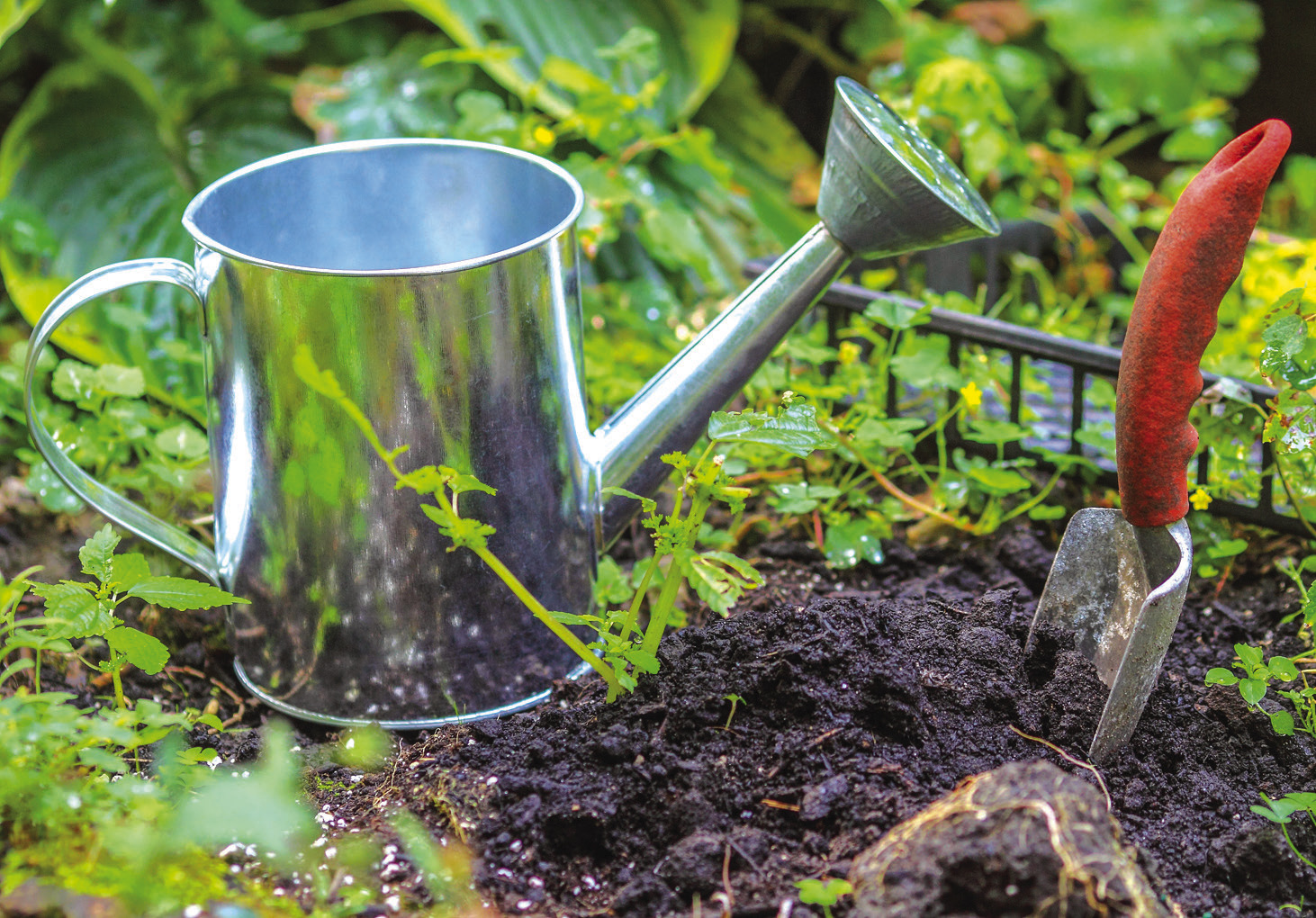Anyone with plants has dealt with questions about fertilizer use. Many people buy synthetic or chemical fertilizers for convenience, but do not know about the alternatives. Synthetic fertilizers contain three main minerals: nitrogen (N), phosphorous (P) and potassium (K). Nitrogen encourages leaf growth, phosphorus aids the production of flowers, fruits and vegetables and potassium, promotes root growth and health. Unfortunately, synthetic fertilizers contain high concentrations of these minerals that force-feed excessive amounts to a plant in a short amount of time. The result is fast growth that looks great but stresses the plant and leaves it vulnerable to pests and disease. Since a plant can only absorb so much of a nutrient, the rest leaches into water systems with harmful results. Synthetic fertilizer upsets the microbic system in the soil and around the roots. One tablespoon of healthy soil contains approximately 50 billion microbes that enable the roots to absorb the minerals in a form the plant can use.
Organic fertilizers enable the nutrients to work with the microbes, so the nutrients are slowly absorbed to keep the plant healthy longer. Liquid fertilizers provide nutrients more uniformly and are easy to apply correctly with needed diluted strengths. There are many commercial organic fertilizers, but why buy them when you can easily and cheaply make them?
Homemade liquid fertilizers are called teas because they are steeped or brewed like tea.
Most fertilizer teas require a container or five-gallon bucket with a lid. Some teas will need oxygen infused by stirring the mixture frequently or using a fish tank aerator system. In addition, a porous material like cheesecloth or burlap is needed to contain the organic material or to separate the finished tea from the solid material. Lastly and importantly, non-chlorinated water is essential.
Tap water is chlorinated water. It is designed to kill the microbes the fertilizer tea is trying to encourage. When water is referenced in the text, it means non-chlorinated like rainwater, AC condensation run-off, or distilled water.
To make your own compost tea you will also need compost, worm castings, or manure teas (must be from non-carnivorous animals) which must be fully finished and decomposed. Fill a bucket with a 1:4 ratio of compost, worm casings or manure (enclosed in porous cloth like burlap) to water. Set up the aerator or stir frequently for 24 to 36 hours (cover between stirrings). The container should not sit in direct sun or high temperatures. Next, strain the compost or worm casing tea to remove solids and dilute further with a 1:8 tea to water ratio. After it is brewed it will look like a rich, frothy tea. Now dilute with a 1:1 ratio of manure tea to water. The teas can be used for up to three days.
While not every plant owner has access to compost, worm casings, or manure, there are plenty of other organic materials to make fertilizer tea. Green tea fertilizer can be made from leaves, grass clippings, and/ or unseeded weeds. Set the green material in the bucket and add water until it is slightly over the top. Cover and let it sit without stirring for three days. After draining away any solid particles, dilute with a 1:10 ratio of green tea to water. This brew is high in nitrogen. Fish tea is brewed by soaking fish scales, skin, bones, and entrails in a tightly-sealed 5-gallon bucket of water for a month. Strain and use immediately. When changing the water in a fish tank, use the old water on your plants. It provides nitrogen, potassium, and phosphorous to plants. To make banana tea, keep a large jar of water in your refrigerator, and when you eat bananas, put the peels in it. After the jar is full, let it sit covered for a week. Strain the banana tea and use it to get a potassium-rich fertilizer. Eggshell tea is a good source of calcium. Just collect your empty, clean eggshells until you have 10 to 12 eggshells. Boil them in a gallon of water for a few minutes, then remove the mixture from the heat to sit for 24 hours so the calcium can leach into the water. You can also use the water left from making hardboiled eggs if the water is unsalted. Strain and use the eggshell tea to provide calcium to tomatoes and peppers. Finally, save the water when you boil vegetables because it is rich in vitamins. Let the water cool, dilute with more water, and use it immediately on any plant.
Water plants sufficiently and wait 24 hours before applying fertilizer teas.








